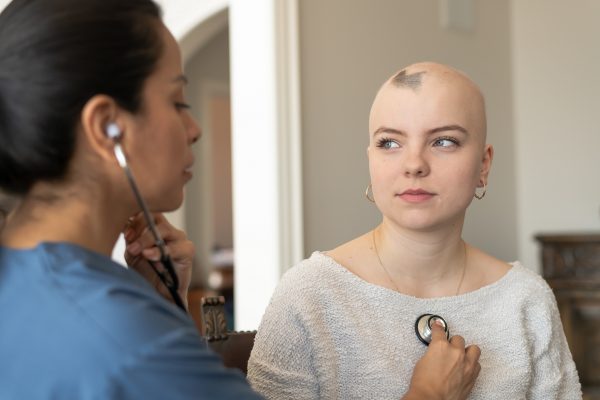
Obecabtagene autoleucel (obe-cel) previously exhibited clinical activity in adults and younger individuals with B-cell acute lymphoblastic leukaemia (ALL) in phase I trials. Recently presented at ASCO 2023, the results of the phase Ib/II FELIX study underscored the safety and effectiveness of obe-cel in adult patients with relapsed/refractory (R/R) B-ALL, offering high remission rates and long-lasting CAR T cell persistence.
CD19 CAR T therapy has revolutionised the landscape treatment of relapsed/refractory (R/R) B- acute lymphoblastic leukaemia (ALL). Obecabtagene autoleucel (obe-cel) is an autologous CD19 CAR-T cell therapy with a fast off-rate CD19 binding domain designed to reduce CAR-T immunotoxicity and improve persistence. The clinical activity of obe-cel has been previously tested in R/R paediatric and adult B-ALL in phase I studies. Most recently, the phase Ib/II FELIX trial evaluated the efficacy and safety of obe-cel in adult patients with B-ALL.
The phase Ib/II FELIX trial enrolled adult patients with R/R ALL. After leukapheresis and bridging therapy, patients were admitted to the hospital for pre-conditioning and treatment. All patients received a total target dose of 410×106 CAR T cells as a split dose on days 1 and 10 of treatment. Patients with bone marrow (BM) blasts ≤20% at screening were infused with 100×106 CAR-T as a first dose, and with 310 x 106 as a second dose. For those patients with BM blast percentages > 20%, the first dose was 10×106 CART-T cells, and the second dose was 400 x 106. This presentation focused on the data from adult R/R ALL patients with ≥ 5% BM blasts at screening (cohort IIA). The primary endpoint was the overall remission rate (ORR), defined as the proportion of patients achieving complete remission(CR) and CR with incomplete count recovery (CRi).
In total, 94 R/R B-ALL patients were evaluated, with a notable subset having experienced ≥3 prior lines of therapy (31%) and high (>75%) marrow burden (33%) at the time of infusion. After a median follow-up of 9.5 months, obe-cel infusion resulted in an ORR of 76%, with 97% of responders achieving minimal residual disease (MRD) negativity. Notably, 61% of responders remained in remission without receiving new therapies. Furthermore, obe-cel infusion resulted in very low rates of grade ≥3 cytokine release syndrome (CRS, 3.2%) and low rates of grade ≥3 neurotoxicity (ICANS, 7.4%). Additionally, the manufacturing process for obe-cel proved to be robust, with product released for 94% of patients who underwent leukapheresis, taking a median of 21 days from vein to release. Engraftment of CAR T cells was excellent, with a peak concentration (Cmax) of 114,982 copies/ug reached within fourteen days (Tmax).
In conclusion, the pre-specified interim analysis of the FELIX study shows the safety and effectiveness of obe-cel in adult R/R B-ALL, even in patients with a high disease burden. It offers high remission rates and long-lasting CAR T cell persistence, holding promise for this challenging patient population.
References
Reference
Roddie C, Sandhu KS, Tholouli E, et al. Safety and efficacy of obecabtagene autoleucel (obe-cel, AUTO1), a fast-off rate CD19 CAR, in relapsed/refractory adult B-cell acute lymphoblastic leukaemia (r/r B-ALL): Top line results of the pivotal FELIX study. Presented at ASCO 2023; Abstract 7000.